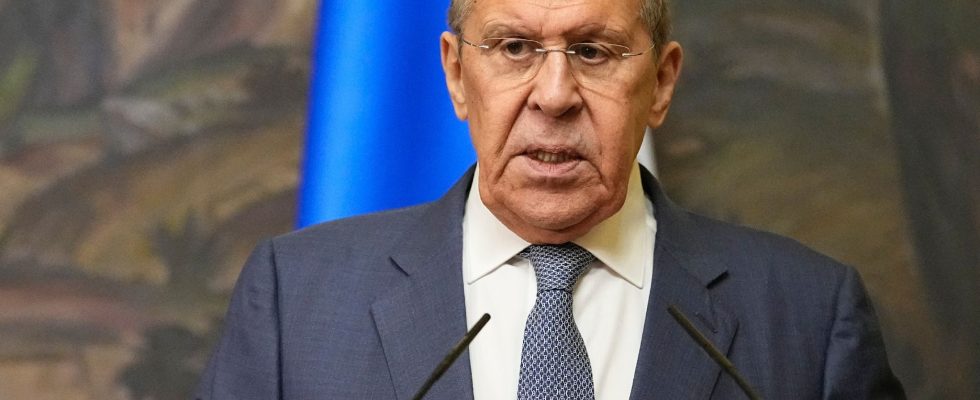It is a red line that has been crossed. The three Baltic countries – Estonia, Lithuania and Latvia – have decided to follow Ukraine’s decision, and boycott the meeting of the Organization for Security and Cooperation in Europe (OSCE), which is due to take place held this week in Skopje, North Macedonia. In question, the invitation of the head of Russian diplomacy Sergei Lavrov, who had nevertheless been excluded in 2022 from the annual meeting of the OSCE, which took place in Poland.
According to the three Baltic countries, signatories of a joint statement, this invitation “risks legitimizing the aggressor that is Russia as a full member of our community of free nations”, of “trivializing the atrocious crimes that the Russia committed.” The three foreign ministers also point out that this could resemble a form of “tolerance towards Russia’s violation and blatant disregard of the fundamental principles and commitments of the OSCE.”
“Lavrov’s place is in a special court, not at the OSCE table”
These statements come the day after Bulgaria announced that it will grant permission for the plane carrying Sergei Lavrov to fly over its airspace so that he can travel to the OSCE meeting in the Macedonian capital. . And this, despite European sanctions hitting Russia for its invasion of Ukraine launched in February 2022.
This privilege had been denounced head-on by the spokesperson for Ukrainian diplomacy, Oleg Nikolenko, who protested against a decision which sends “signals on the possibility of returning to the forms of cooperation which existed before February 2022 to a state that unleashed the greatest armed aggression in Europe since the end of the Second World War.
According to Estonian Foreign Minister Margus Tsahkna, “Russia will use this opportunity to spread its propaganda and undermine Western unity.” “The fact is that while the OSCE meeting is taking place in Skopje, the Russian war machine is attacking innocent Ukrainians and deporting children without batting an eyelid,” he added, declaring that “Sergei Lavrov’s place is in a special court, not at the OSCE table.”
Sergei Lavrov, for his part, was quite clear on the reason for his visit, specifying to theAssociated Press that Russia was not thinking of renewing ties with Europe, but rather of “protecting us in all key sectors of our economy, our life in general and our security”.
An organization dating from the Cold War
The Organization for Security and Cooperation in Europe is the successor to the Conference on Security and Cooperation in Europe. Created in 1973, right during the Cold War, it was then supposed to be the intermediary for discussion between the Soviet and Western enemy blocs.
But over the years, its usefulness has waned, in particular due to the need for the necessary unanimity required between its 57 members to have a decision adopted, and the non-binding nature of these from a legal point of view. However, it had been mandated for a civilian observation mission from 2014 in Ukraine, particularly in the regions annexed by Russia, in the east of the country. But she had to flee at the start of the fighting, in February 2022.
